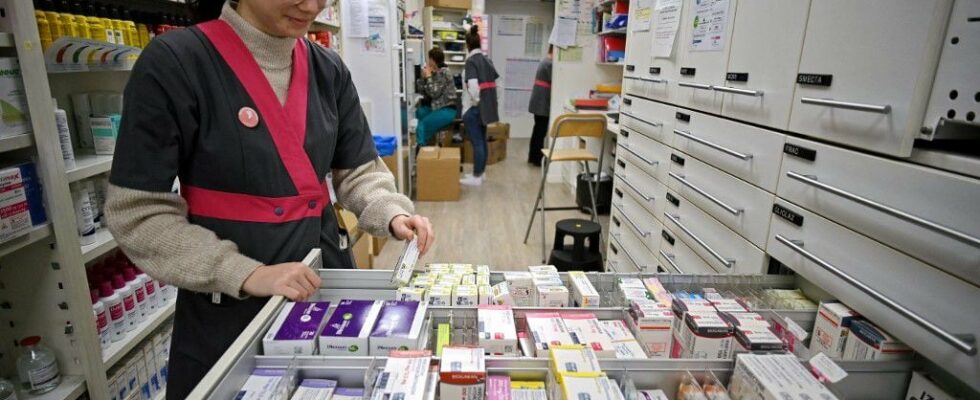The drug Periactin, an anti-allergic used in a roundabout way by certain people to gain weight, will no longer be sold freely in pharmacies, the medicines agency announced on Thursday June 27.
As of July 10, “any medication containing cyproheptadine can only be dispensed with a medical prescription,” the National Medicines Safety Agency (ANSM) announced in a press release.
It has been misused
Cyproheptadine, sold by the Teofarma laboratory under the name Periactine, is basically an anti-allergy drug that has been sold for several decades. But it is being misused by people, often young women, who are trying to gain weight.
This molecule actually promotes an increase in appetite, an effect touted on certain social networks with the stated aim of reproducing the silhouette of callipyge personalities such as reality TV star Kim Kardashian.
However, cyproheptadine can cause a series of side effects, sometimes serious, if it is taken uncontrolled. In this context, the ANSM, which has already been calling for vigilance from health professionals since 2022, has therefore put an end to the over-the-counter sale of this treatment. Prescriptions for cyproheptadine should, in fact, be very rare since other antiallergics have since proven themselves with better effectiveness and fewer side effects.
Promoting cosmetic use
The ANSM made its decision “based on what we see on social networks where there is always significant promotion of the cosmetic use” of this treatment, Isabelle Yoldjian, medical director, explained to AFP. at the agency. However, it is difficult to get an idea of the real extent of the misuse of Periactin because, beyond pharmacies, this treatment is widely sold online, in a manner that is difficult to control.
“We cannot have a numerical estimate of misuse,” admits Isabelle Yoldjian, believing that the few cases of adverse effects recorded in recent years are probably below reality. If the measure taken by the ANSM will have an effect in pharmacies, it is more difficult to assess to what extent it will have an effect on online sales.
“We are not the Internet police,” acknowledged Isabelle Yoldjian, who nevertheless judges that the actions undertaken by the ANSM have already contributed to greater awareness of the risks associated with misuse of this treatment.
